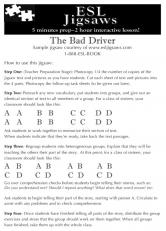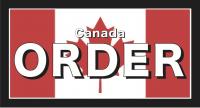ESL Jigsaws
5 Minutes Prep - 2 Hour Interactive Lesson!
Viewing entries tagged with 'intermediate'
Intermediate Reading Lesson on Hoarding
The popularity of reality television shows on hoarding indicates people are fascinated (or horrified?) by hoarding. Your students may find this intermediate level reading lesson interesting. The questions require learners to interpret information by making inferences and require them to extend their literal comprehension and form opinions and new ideas from the information in the text. An adverb exercise is included.
Earth Day
Earth Day is coming up and this blog has a number of environment related materials you could make use of for beginner or intermediate English language learners, whether ESL or EFL.
Correcting Name Pronunciation
Thanks to Jennifer Chow for retweeting this great video clip of Hasan Minhaj teaching Ellen DeGeneres how to pronounce his name and discussing the, er, ethnocentrism involved in which names we make an effort to learn to pronounce and which we give up on: https://twitter.com/hasanminhaj/status/1113952740596768771
Review Games for Christmas
Looking for a game to play to review Christmas information? Learning about the holidays is not just fun, it helps students crack our cultural code. I've made three sets of review questions for Christmas and two game templates for playing with them. You could use the game templates for reviewing any material.
New Year's Activities for Beginner and Intermediate
The most common ESL activity for the first class back after New Year's is writing New Year's Resolutions. It’s a great way for beginner classes to practice the future tense and can make for some fun reading if posted in the classroom.
Top 12 Tips for Gift Giving in English Cultures
Cross cultural differences in gift giving pose challenges for immigrants and visitors with their unspoken rules of etiquette. Students can develop their soft skills by cracking this sometimes inscrutable cultural code with the help of this online true or false quiz. Or download the free exercise that follows for use in a high beginner or intermediate classroom. The answers can be downloaded following the quiz.
News Articles for Intermediate Students
Stroke victims often suffer from aphasia, a condition that can result in anything from occasional trouble finding words to completely losing the ability to speak or read or write. Intelligence is unaffected.
Intermediate Level Personal Information
Filling in forms is one of the most common activities English language learning students have to do outside the classroom. It's a mistake to assume once students reach the intermediate level they have fully mastered the language required for those tasks.
Canada Day Fun with Maps
Canada Day is approaching. After teaching a unit on Canada, it can be fun to divide students into groups of three, give each group a large sheet of chart paper and ask them to draw the map of Canada. Make sure all Canada maps in your classroom are covered for this exercise. Have each group label the provinces and their capital cities on their map. Once each group has finished, you can display the maps around the classroom. Worthwhile learning can take place as they compare their maps to a real map and realize what they had out of proportion or incorrectly labeled.


